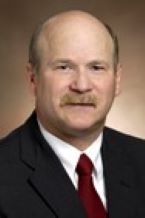 This month the PNA Spotlight focuses on Dr. Kevin Lillehei, Chair of Neurosurgery at University of Colorado Health Sciences Center and Medicine, where he directs the Pituitary Tumor Division and the Surgical Neuro-oncology Fellowship. He is also a member of the PNA Scientific Advisory Board. Dr. Lillehei earned his B.S. at Cornell University in New York, and his medical degree at the University of Minnesota. He did an internship and his residency at the University of Michigan Hospitals and Health Centers Program. He was kind enough to answer a few questions from the PNA. His answers follow.
This month the PNA Spotlight focuses on Dr. Kevin Lillehei, Chair of Neurosurgery at University of Colorado Health Sciences Center and Medicine, where he directs the Pituitary Tumor Division and the Surgical Neuro-oncology Fellowship. He is also a member of the PNA Scientific Advisory Board. Dr. Lillehei earned his B.S. at Cornell University in New York, and his medical degree at the University of Minnesota. He did an internship and his residency at the University of Michigan Hospitals and Health Centers Program. He was kind enough to answer a few questions from the PNA. His answers follow.
• What inspired you to choose your career path?
During residency I had a terrific neurosurgery mentor and role model who introduced me to the treatment of patients with pituitary tumors. Following graduation, I was fortunate to partner with an incredible group of endocrinologists at the University of Colorado who allowed me to continue my interest in the neurosurgical treatment of patients with pituitary tumors.
• What is the primary focus of your work/research?
Currently I am Chair of the Department of Neurosurgery at the University of Colorado Health Sciences Center, Director of the Pituitary Tumor Division and Director of the Surgical Neuro-oncology Fellowship. As indicated from above, my passion lies in the treatment of patients with brain and spinal cord tumors, both benign and malignant. In malignant tumors of the brain, our clinical and research work has centered on novel uses of immunotherapy for treatment of high- grade gliomas. In addition, we are invested in improving the extent of resection of these tumors, with minimizing morbidity. We currently have a research glioma tumor bank of over 1,300 specimens. For pituitary tumors, we have had a particular clinical and research interest in patients with acromegaly and Cushing’s disease. This is a group of patients that, in particular, require a multi-disciplinary team approach to treatment, and we have been fortunate to have assembled such a team in Colorado. Currently I have personally done over 2,500 transsphenoidal procedures, working closely with our endocrinology associates. Our pituitary tumor research bank currently holds 724 specimens.
• What do you consider to be the future of your field?
In the treatment of pituitary tumors, I feel the future of our field lies ultimately in our ability to manage these lesions medically, without surgical intervention, as we currently do with prolactinomas. The future of our field also lies in being able to recognize these lesions earlier and provide treatment before the development of neurologic and/or endocrinologic dysfunction.
• What should patients know about your field/what deserves more recognition/awareness?
I think the single most important message is that in pursuing treatment for pituitary tumors, patients should seek out centers with experience and, in particular, centers that possess a team centered approach to treatment. These centers should consist of dedicated surgeons, endocrinologists, neuro-pathologists, neuro-radiologists and ophthalmologist working closely together.
• What would you like to convey about yourself to your patients?
Treatment of pituitary tumors is unique to each individual and I approach each patient in this manner. Treatment of these lesions has been a life-long passion of mine and we always strive to do the best job we can for each individual.
• Why did you get involved with the PNA; what is the extent of your involvement?
Treatment of patients with pituitary region tumors has been a large part of my practice for over 30 years. During this time, I have strived to always offer the best care possible, whether surgical, medical or a combination of both. Over the years, I have worked closely with the PNA and know first-hand that this is their goal as well. With like-minded visions, I am honored to be a member of PNA’s Medical Advisory Board and to work towards this common goal.
